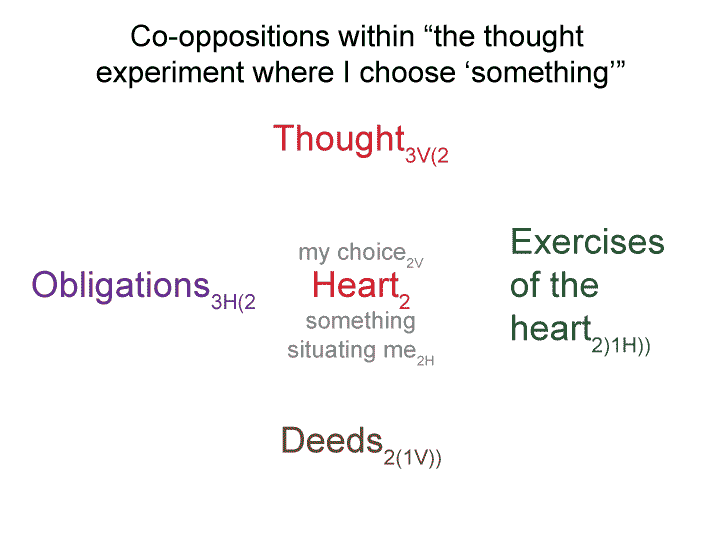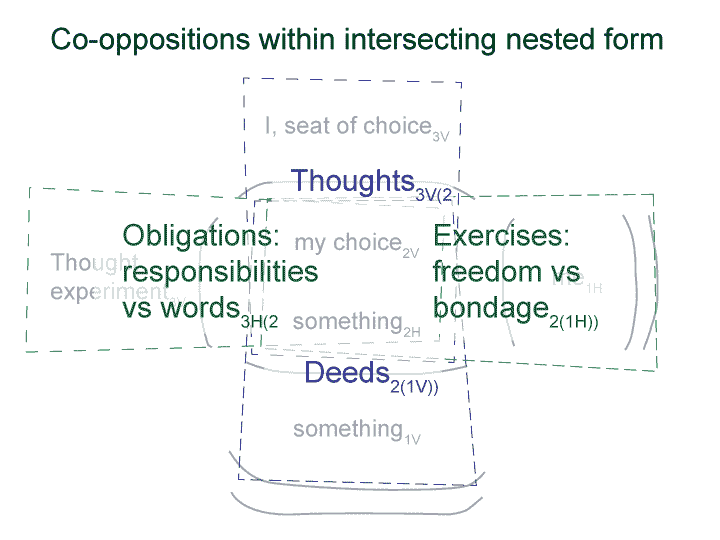Man and Sin by Piet Schoonenberg (1964) 2.3 IA
Summary of text [comment] page 83
[Obligations are implicit to the mandala of the heart.
They are portrayed in the following categorical pair:
Thought experiment3H( my choice2V and something2V(_1H))
Or:
Thought experiment3H( my heart2( _1H))]
Man and Sin by Piet Schoonenberg (1964) 2.3 HZ
[In the next few blogs, I construct a thread in the style of Carl Jung.
It will lead me back to Schoonenberg’s discussion on our inclination to evil as a sequel to sin.]
Man and Sin by Piet Schoonenberg (1964) 2.3 HY
Summary of text [comment] page 83
[The heart is a single, contradiction-filled actuality.
Does the intersection of ‘I choose something illuminated in the mirror of the world’ reflect the anatomy of desire?
Have you heard the name of Jacques Lacan?
How about Bruce Fink or Slavoj Zizek?
How about Carl Jung and Marie Franz?
A brief reading of any of their disturbing works will bring this model to life.]
Man and Sin by Piet Schoonenberg (1964) 2.3 HV
Summary of text [comment] page 83
[In the modern view, words are opposed to bondage.
This is misleading.
Words are co-opposed to bondage.]
Man and Sin by Piet Schoonenberg (1964) 2.3 HU
[In the modern view, responsibilities are opposed to freedom.
This is misleading.
Responsibilities and freedom are in co-opposition.]
Man and Sin by Piet Schoonenberg (1964) 2.3 HT
Summary of text [comment] page 83
[In the modern view, thoughts are opposed to deeds.
This is misleading.
Thoughts are co-opposed to deeds.]


